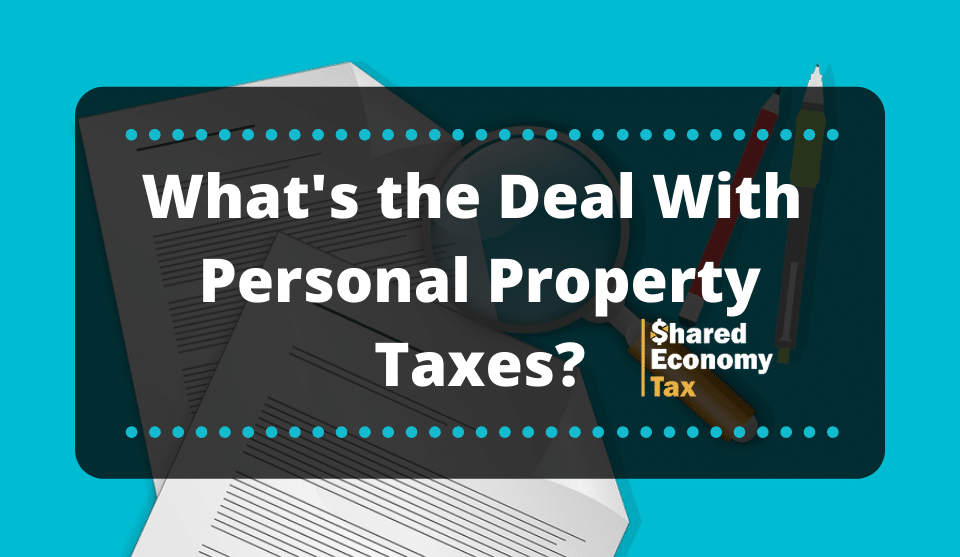Some municipalities use personal property tax to generate revenues for public programs and infrastructure. Each tax jurisdiction has the power to levy their own taxes and set their own guidelines. As a result, there are no set rules regarding personal property taxes. You have to check with your local tax authorities to find out specific policies for your area, but we’re going to cover some of the basics.
What is Personal Property Tax?
Local governments often impose taxes on individuals that have significant assets. The most common property taxes apply to real estate. However, some businesses or individuals may also have to pay additional taxes for their big-ticket assets.
Personal property is defined as any movable object that is not permanently fixed to a home or building. Each state has their own set of personal property tax rules, and they have varying tax rates and exemptions. These types of taxes most frequently apply to businesses, but they could be a factor for some high net-worth taxpayers.
Tax Definition of Personal Property
The IRS defines personal property as an asset that is not ‘real property’. Tax authorities classify ‘real property’ as anything not permanently fixed to a foundation, so this category includes all non-movable assets. Municipalities with personal property taxes have a variety of tax policies regarding these types of assets.
Personal Property Examples
Personal property usually applies to a business’s tangible assets. If you can move it, it’s probably considered personal property. Common examples of assets in this category include vehicles, machinery, equipment, furniture, and tools.
These assets can incur personal property tax, but it depends on where you live. Your tax jurisdiction sets its own guidelines, so you have to check with local tax authorities to see if you’re on the hook.
How to Check if I Owe Taxes for Personal Property
The personal property tax falls under state and local taxes. State and local taxes can vary from state to state and city to city, so you should check with local tax authorities to see your city/state guidelines.
Visit your state’s website to learn more about your local tax policies. You can also visit your county and city websites for more information on local tax rates.
Remember, you can potentially deduct a large portion of your personal property taxes on your federal return if you choose to itemize, so make sure you include any personal property tax payments on your 1040 Form.
Get Answers to Your Tax Questions Now
When it comes to calculating your personal property taxes, consulting with a professional can make a world of difference. A SALT (state and local taxes) accounting specialist can ensure your accounts comply with tax laws and help you take advantage of every available credit. Talk to a Shared Economy Tax specialist to learn more about how personal property taxes could affect your financial picture. Get started today with a one-on-one strategy session, or sign up for our tax tips newsletter using the form below.
